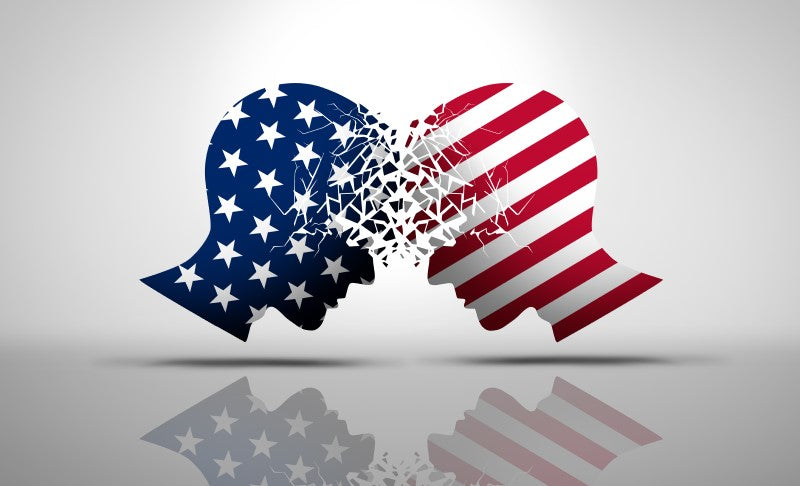If one were to place politics of the early 1800s side by side with today’s politics, the two would have almost no resemblance. Proof of this can be seen in the very definition of the word POLITICS from the Webster 1828 dictionary and the current Merriam-Webster definition. The stark contrast is shocking and speaks volumes. We will take a look at both in a minute, but first let’s dive into a little early American history.
When the colonies separated themselves from Britain in 1776, they were looking for a different type of political system. This process took time and did not come without a period of trial and error. There was a strong desire for independence, not only from their mother country, but as separate states and as individuals. This intense desire, combined with the urgency of creating a governmental system during the Revolutionary War, resulted in fiercely independent states with a weak confederate congress that lacked sufficient power to unite the states. Thus, when the framers came together to draft a new government in 1787, they referred to it in the Preamble as “a more perfect union”, meaning more perfect than the articles of Confederation.
Their second attempt was during a crisis of disunity between the several states. However, they were able to learn from the past and discover better ways of governing a free people. This concept of learning from the past led to a political system that is unique to any in human history. Because they approached it from a scientific perspective, they utilized the wisdom gained from past successes and failures and produced a better political system. This is the reason we use the term “political science”. The very term suggests social progress through observable and measurable outcomes.
We use this method in nearly every other field or industry. This is what has made space exploration possible, including the recently launched James Webb telescope. The marvel of modern medicine is yet another example of building on the scientific discoveries of the past. This process of discovering and improving is what keeps us moving forward instead of continually trying to reinvent the proverbial wheel. Political Science should be no different in terms of improvement. With this in mind, let’s now take a look at the 1828 definition of politics.
POL'ITICS, noun: The science of government; that part of ethics which consists in the regulation and government of a nation or state, for the preservation of its safety, peace and prosperity; comprehending the defense of its existence and rights against foreign control or conquest, the augmentation of its strength and resources, and the protection of its citizens in their rights, with the preservation and improvement of their morals. politics as a science or an art, is a subject of vast extent and importance.
Early American’s considered it a duty to protect human rights and preserve society through the “improvement of their morals”. In other words, politics was the method by which a government was to apply the “principles of right and wrong in behavior”[1] to create laws that would most likely ensure the safety, peace and natural rights of its citizens. It was intended to be a team effort for the preservation of society.
Over time the perceived role of politics began to morph into what it is today. Let’s take a look at the current definition from the Merriam-Webster Dictionary.
POLITICS, noun:
- the art or science concerned with guiding or influencing governmental policy
- the art or science concerned with winning and holding control over a government
- competition between competing interest groups or individuals for power and leadership
- political activities characterized by artful and often dishonest practices
Very recently the world of politics has escalated even beyond these definitions to almost embrace what Victor Chernov, a political rival of Vladimir Lenin, wrote in Foreign Affairs: “Politics to him meant strategy, pure and simple. Victory was the only commandment to observe; the will to rule and to carry through a political program without compromise, that was the only virtue; hesitation, that was the only crime.” For Lenin, he continued, “politics is disguised war [and] the rules of war constitute its principles.”[2]
It is true that human nature tends toward power. This observable outcome of leadership throughout history was understood by America’s Founders. They therefore separated powers in our federal system to protect against this natural tendency.[3]
As citizens it is important to understand that our political system is vastly different from politics of the founding era. The framers of the Constitution didn’t have all the answers, but we should build upon their discoveries and learn from their mistakes instead of repeating them. We can do better; we must do better at electing men and women of integrity; statesmen who have been taught in the science of government and not merely in how to win and maintain office for personal or party agendas. Politics should be a discipline of science, not a theater of war.
[1] Definition of moral; Meriam-Webster Dictionary
[2] Chernov, Victor. “Lenin: A Contemporary Portrait.” Foreign Affairs, vol. 48, no. 3, 1970, pp. 471–77. JSTOR, https://doi.org/10.2307/20039457.
[3] We will discuss the separation of powers doctrine in a future article.

